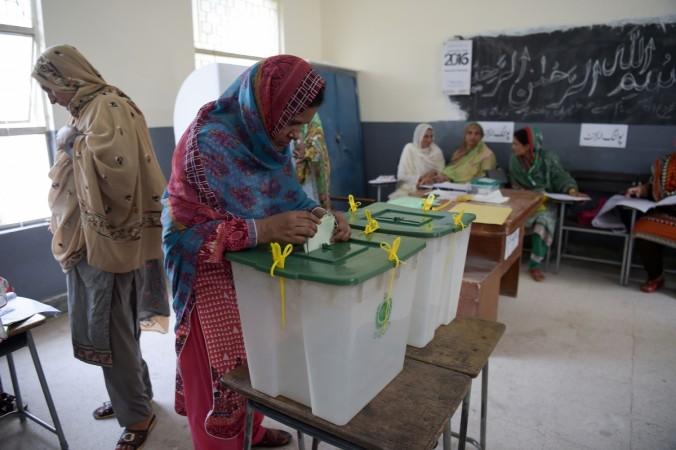
With Imran Khan's Pakistan Tehreek-e-Insaf (PTI) seemingly in the lead, the Pakistan stock market witnessed a bullish trend on Thursday morning, gaining 767 points in the early trade.
With the country voting for its second consecutive democratic transfer of power, the KSE-100 index reached 42,106 points early in the day, a new high for the nation struggling to combat terrorism and corruption.
Unofficial results have shown that so far, the PTI, helmed by the former world cup winning captain is leading the national assembly with 118 seats, just short of the magic 137 required. Despite not winning a clear majority, party workers across the country are busy celebrating the success.
However, the incumbent Pakistan Muslim League-Nawaz (PML-N) has rejected the results, calling them "outright rigging". However, these claims have been denied by the Election Commission of Pakistan (ECP), who said that the elections were 100 percent fair and transparent, despite a few glitches with the new electronic results system.
Earlier this month, Sulaiman S Mehdi, the CEO of private equity firm Cyan Limited was appointed as the chairman of the PSE following the removal of Hussain Lawai. Lawai was removed after a directive by the Securities and Exchange Commission of Pakistan, following his arrest on July 6 on money laundering charges.
Lawai was accused by the Federal Investigation Agency in connection with an Rs. 35 billion scams, that involved multiple bankers, politicians and businessmen including former president Asif Ali Zardari and several of his close associates.

















